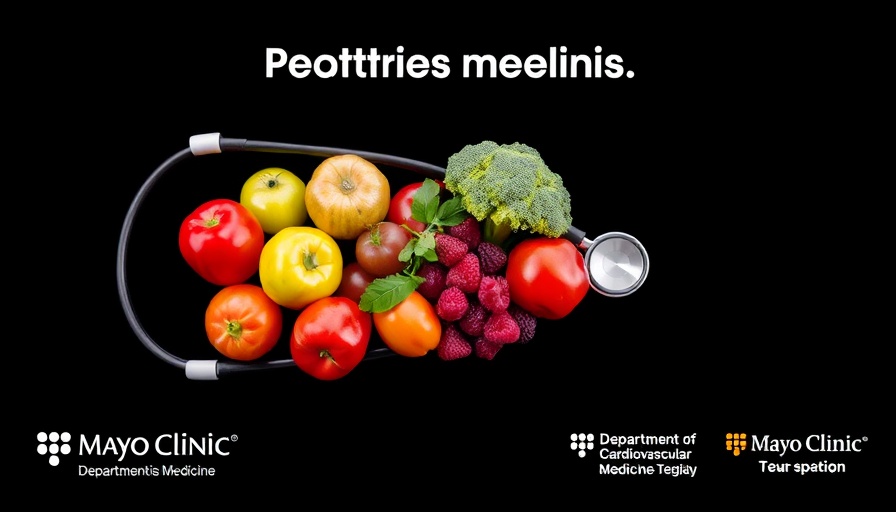
The Vital Role of Lifestyle Changes
In today's fast-paced world, it's easy to overlook the building blocks of health: our lifestyles. A recent discussion with Dr. Scott Wright and Dr. Stephen Kopecky at Mayo Clinic highlighted an essential truth: Even with the advancements in medical therapies, individual choices about diet, exercise, sleep, and stress management remain crucial for preventing chronic diseases and enhancing overall well-being.
In 'Lifestyle Modification in the Setting of New Prevention Therapies', the discussion dives into the essential role of lifestyle choices in the efficacy of modern health treatments, prompting a closer look at these insights.
Diet: The Foundation of Heart Health
While new medications, including injectables for lowering cholesterol, provide significant benefits, Dr. Wright emphasized that they are not substitutes for a healthy diet. The Mediterranean diet, which emphasizes fruits, vegetables, whole grains, and healthy fats, is proven to lower inflammation and reduce cancer risks. As Dr. Wright pointed out, “If you're going to destroy all that with your diet, why spend money on medications?” Our food choices not only impact our immediate health but also influence long-term outcomes.
Exercise and Mental Well-being
Incorporating regular physical activity is another critical contributor to health. Dr. Wright noted that exercise should be done in a way that minimizes injury while maximizing benefits. Moreover, activities that enhance mental well-being can elevate happiness, making it easier to maintain healthy habits. From yoga to outdoor walks, finding enjoyment in movement is essential.
Sleep and Stress Management
Healthy sleep patterns and effective stress management techniques are crucial aspects that many individuals overlook in their wellness journey. Lack of sleep can lead to increased stress and poor dietary choices, creating a vicious cycle. Aiming for at least 7-8 hours of quality sleep each night can help restore the body and improve decision-making around health.
Empowering Patients through Knowledge
A recurring theme in the conversation was the importance of empowering patients to take charge of their health. This means engaging patients in understanding that while medication plays a role, lifestyle modifications can amplify the benefits of these therapies. Dr. Wright encourages communication with patients about their dietary habits and challenges, creating a partnership that fosters hope and motivation.
Bringing it All Together
As we integrate these insights from Dr. Kopecky and Dr. Wright, it becomes clear: Prevention and lifestyle modifications are inseparable components of a healthy life. The knowledge that we can significantly influence our health through everyday choices is empowering and should motivate us to take action today.
Stay informed about how lifestyle modifications can help improve your health by exploring trusted resources or consulting with health professionals. Take steps towards a healthier life by incorporating these practices into your daily routine.
 Add Row
Add Row  Add
Add 




Write A Comment